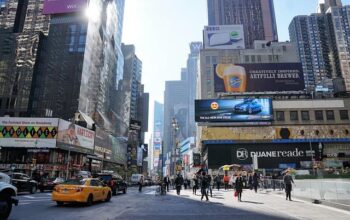Just ten years ago, online shopping was seen as a convenient addition to traditional trips to the mall. Today, everything has changed: digital technologies have completely transformed the way we choose, purchase, and receive products. Portuguese consumers, like millions of people around the world, increasingly prefer virtual storefronts, mobile apps, and algorithms that “guess” their desires. In this article, we’ll explore exactly how technology has reshaped shopping culture and why, for many, visits to the mall have become a thing of the past.
The Smartphone as the Shopper’s Main Tool
Mobile devices have taken center stage in digital shopping. In Portugal, smartphone penetration among the adult population exceeds 90%, which means nearly everyone carries a personal shopping mall in their pocket. Thanks to mobile apps and responsive websites, users can not only browse products but also compare prices, read reviews, and make purchases instantly. Smart notifications, personalized offers, and geolocation have made mobile shopping not just convenient but truly effective.
It’s also worth noting the role of voice assistants like Siri and Google Assistant. They help users search for products, place orders, and even find discounts. This is especially convenient when a shopper’s hands are full or they simply want to complete a purchase quickly without manually entering data.
Artificial Intelligence and Personalization
One of the key features of the digital revolution in shopping is personalization. Algorithms that analyze behavior, preferences, and purchase history allow stores to offer exactly what the customer wants. In Portuguese online shops and international platforms available to local users, this is particularly evident: recommendations, banners, and promotional emails are almost always relevant and well-timed.
Artificial intelligence is also being integrated into logistics and support processes. Chatbots replace human operators by anticipating customer needs and saving them time. Automated delivery systems analyze routes to ensure that purchases arrive as quickly and cost-effectively as possible.
Incidentally, these same technologies form the foundation for other areas of digital entertainment, including popular sectors in Portugal such as Casinos e Apostas and streaming platforms, where content personalization plays a key role. Algorithms predict preferences just as effectively for clothing choices as they do for games or films.
A New Reality: Virtual and Augmented
Shopping is becoming increasingly interactive thanks to virtual reality (VR) and augmented reality (AR) technologies. Already today in Portugal, major brands offer the option to try on clothes or glasses at home by simply turning on the smartphone camera. Some furniture retailers allow users to “place” a sofa or table in their apartment to see how it would look.
Virtual fitting rooms became especially relevant during the pandemic and have remained popular ever since. They not only increase convenience but also reduce return rates, as customers make more informed choices.
Social Media as the New Generation Storefront
Social platforms, especially Instagram and TikTok, are playing an ever-growing role in shaping consumer preferences. Brands in Portugal actively collaborate with influencers to showcase their products in real-life contexts that resonate with shoppers. The ability to click a link and purchase an item directly from the app makes the process nearly instantaneous.
“Live shopping” formats are also emerging—live broadcasts where viewers can see products in action and order them right away. This blend of entertainment and commerce is becoming increasingly popular among younger audiences.
Payments, Delivery, and Sustainability: What Else Has Changed
One-click payments, Apple Pay, Google Pay, cryptocurrencies, and BNPL (Buy Now, Pay Later) services have reshaped the concept of payments itself. Users now expect purchasing to be as fast and seamless as possible. Portuguese e-commerce platforms are rapidly adopting modern payment solutions in line with global trends.
Delivery systems have also undergone a transformation. Courier delivery within one to two days, pick-up points, and even drones in some countries are becoming the norm. In Portugal, there is noticeable progress in eco-conscious logistics: recyclable packaging, optimized delivery routes, and electric vehicles used by couriers.
From Consumer to Community
Modern digital shopping isn’t just about buying—it’s about participating. Users leave reviews, create unboxing videos, take part in surveys, and influence store inventories. Companies encourage feedback and aim to build trust-based relationships. This is especially relevant in Portugal, where communication and trust are culturally significant.
The Future of Shopping Lies in Hybrid Formats
Despite the growth of online sales, physical stores are not disappearing. They are evolving into showrooms, where customers can touch, try on, and then complete their purchase online. Hybrid formats are a response to the demands of today’s consumer, who values both technology and emotional experience.
In conclusion, the digital revolution has changed shopping not only on a technical level but also culturally. We have become different consumers—more informed, demanding, and mobile. In a world where everything is accessible with a single click, the key is to maintain a balance between convenience and conscious consumption.



